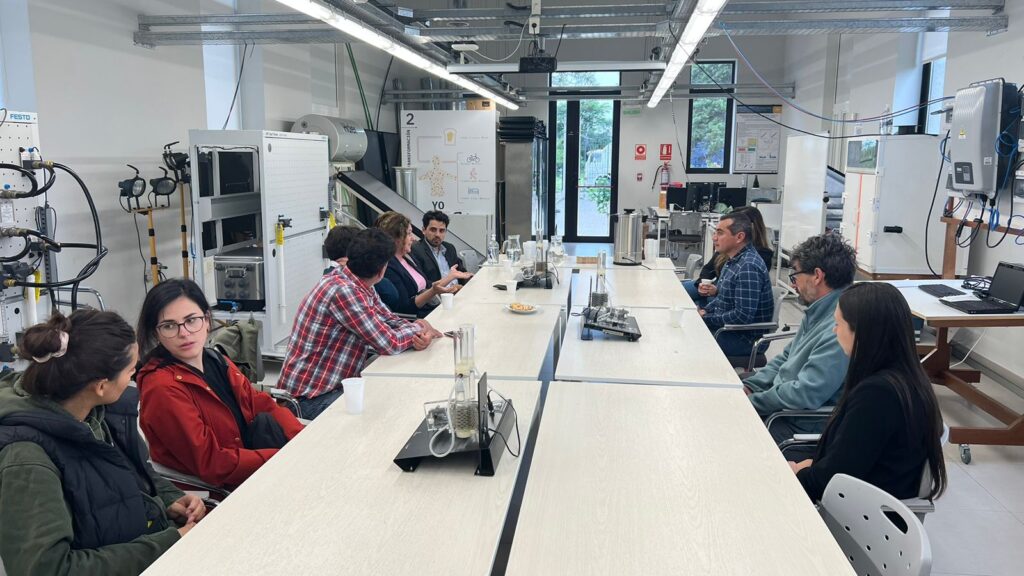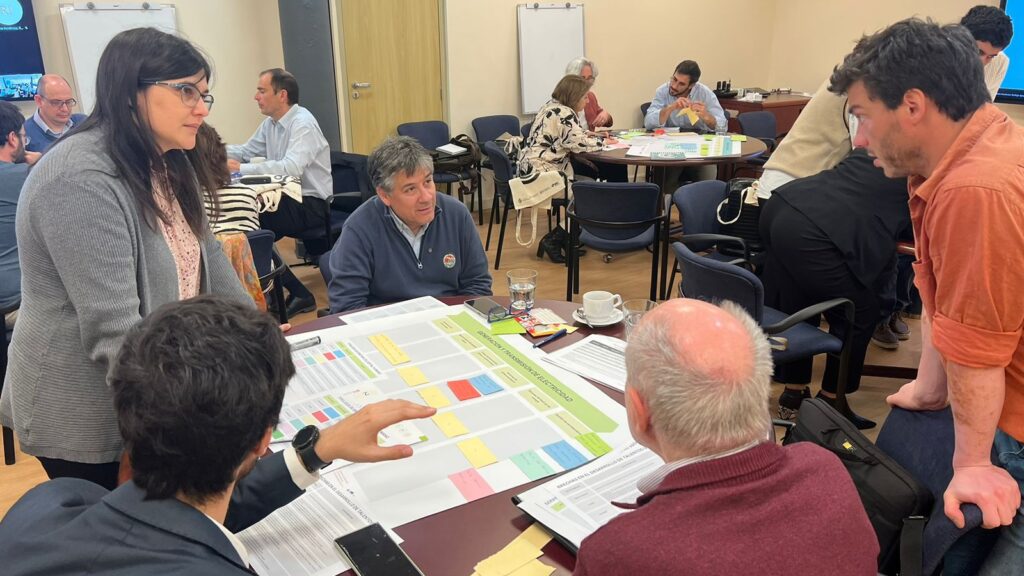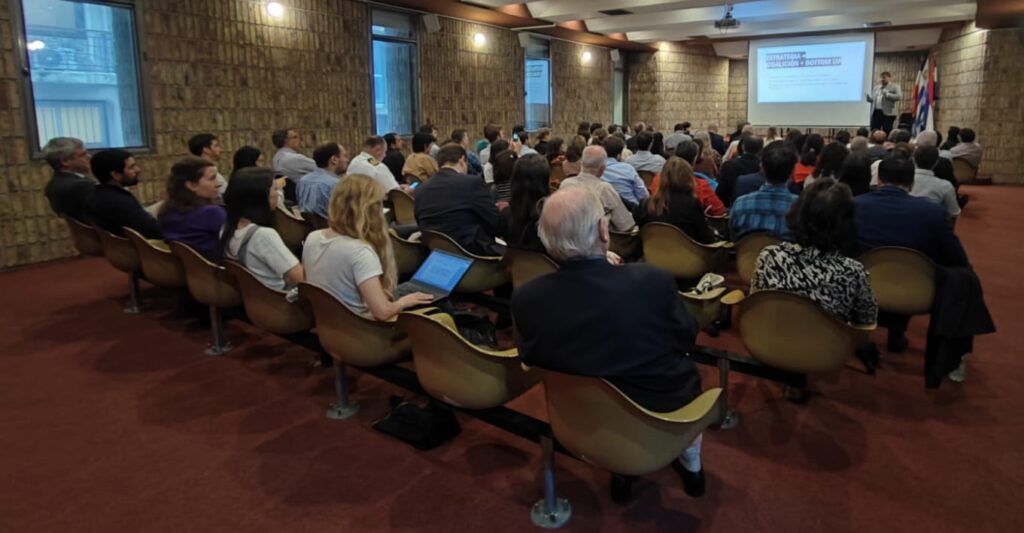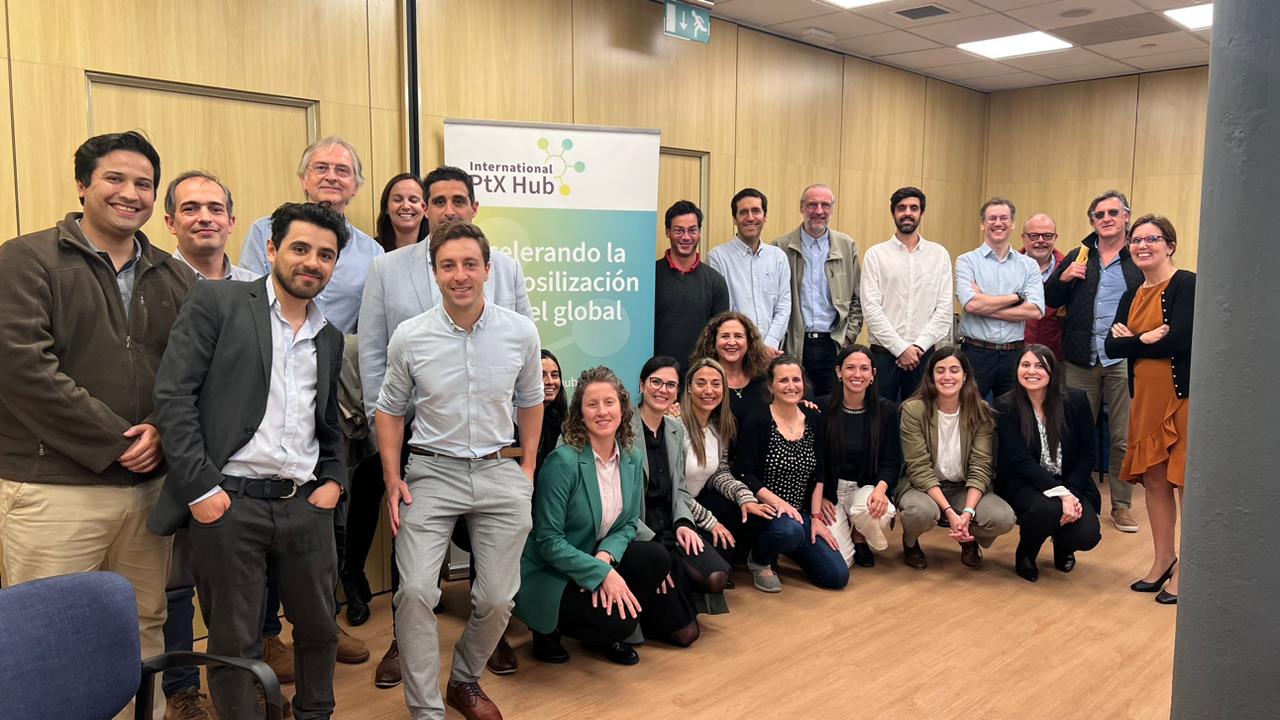Uruguay’s journey towards environmental sustainability has entered a new phase with its second energy transition, which aims to achieve carbon neutrality by 2050. This strategic move is in line with the country’s Long-Term Climate Strategy from 2021 and underlines its commitment to a greener, more sustainable future.
In a significant step forward, just over eighteen months after the launch of Uruguay’s Hydrogen Roadmap in November 2023, with the support of the International Development Bank (IDB) and the German Federal Ministry for Economic Affairs and Climate Action (BMWK) in Montevideo, the Roadmap has undergone a decisive update. This revision, enriched by more than a year of public consultation and with the collaborative efforts of international cooperation initiatives, such as the PtX Hub, highlights the country’s proactive stance in addressing the urgent need for concrete actions to make the Green Hydrogen Action Plan a reality.
Building on an already impressive first phase of its energy transition, Uruguay has made remarkable progress in decarbonising its electricity generation. Between 2016 and 2022, renewable energy sources accounted for an average of 94% of the country’s electricity mix, demonstrating a strong commitment to sustainable energy. The breakdown of this mix includes 44% from hydropower, 31% from wind energy, 17% from biomass, and 2% from solar energy.
This fundamental progress sets the stage for the next ambitious phase: advancing the hydrogen economy and further defossilising the energy sector, particularly transport and industry.

“Once the electricity matrix has been decarbonised, Uruguay is preparing to advance in the defossilisation of other sectors of the economy, particularly the transport and industry sectors, which are the main consumers of fossil resources, resorting to various mechanisms that include direct electrification, Power-to-X solutions, the development of the green hydrogen vector and its derivatives, among others.“
Elisa Facio, Minister of Industry, Energy and Mining
During the VIII Energy Week in Montevideo, hosted by the Organización Latinoamericana de Energía (OLADE), the Ministerio de Industria, Energía y Minería (MIEM), and IDB, Uruguay showed significant progress in the field of green hydrogen and derivatives. The event was a platform to present the refined version of the Green Hydrogen and Derivatives Roadmap, prepared under the leadership of María José González of MIEM.

“The hydrogen roadmap is an integrated development strategy, both in its territorial approach as well as its complementarity with other existing activities at the national level and will have a strong impact on local development. This activity can only be developed under a sustainable framework, with a rigorous environmental commitment and the leadership of the State in planning and control.“
María José González, H2U Project Coordinator and Adviser to the Minister on Energy and Environmental Matters
This plan not only heralds a new chapter in Uruguay’s energy paradigm, focusing on decarbonisation and the development of a hydrogen economy development for domestic and export purposes, but also represents the evolution of the roadmap. Following the first 2022 iteration, this update benefits from extensive consultation with political parties and emphasises the adoption of long-term policy initiatives. Projected to create more than 30,000 skilled jobs and generate US$1.9 billion in annual revenue by 2040, this roadmap, supported by notable entities such as the H2U group, the EU, the Deutsche Gesellschaft für Internationale Zusammenarbeit (GIZ) GmbH, and the IDB, reaffirms Uruguay’s commitment to sustainable and innovative energy solutions.
For the implementation and coordination of the deployment of the hydrogen economy, we are developing the H2U Program, planning work in 5 areas: i) capacity building, ii) regulations, iii) investment, iv) infrastructure and v) social dialogue. We are moving forward with these strategic actions, looking for a strong articulation with other public offices, private sector, academy and energy organisations.
Elisa Facio, Minister of Industry, Energy and Mining
In addition, the Roadmap presents Uruguay’s unique opportunity to synthesise green methanol by combining hydrogen with biogenic CO2, opening up avenues to produce synthetic fuels. This innovative approach not only challenges traditional fuel production paradigms, but is also in line with the strategic objectives of the Roadmap. These include the importance of a coordinated and organised planning strategy, the development of reassuring regulations for the population and project developers, and the need for multi-institutional cooperation.
Significant milestones have been achieved in the implementation of the Roadmap including the ‘H24U’ green hydrogen pilot project for the heavy-duty transport sector. In addition, the country has made significant progress with the launch of three other projects: the ‘HIF’ project, which focuses on the production of methanol and green petrol for export; the ‘Tambor’ project, which aims to produce green methanol for export; and the ‘Kahiros’ project, which is dedicated to the production of hydrogen for heavy-duty vehicles. These steps not only mark significant progress in Uruguay’s energy transition, but also represent a substantial national investment in green hydrogen infrastructure.
The PtX Hub’s Train-of-Trainers programme is an example of a key initiative to build expertise in renewable Power-to-X technologies. By training professionals to become knowledge multipliers, the programme aims to catalyse local economic development and climate protection efforts. In addition, peer-to-peer exchanges, particularly between Uruguayan and Chilean experts, have further enriched the dialogue on Power-to-X industries, addressing challenges and sharing progress. Visits to cutting-edge facilities, such as the Haru Oni pilot plant in Punta Arenas, provided insights into the sector’s technological advances and underscored the need for professional training in this field.

The momentum generated by such contributions extends beyond immediate benefits, fostering a sustainable ecosystem ripe for continued growth and innovation. In Uruguay, this concerted effort toward industry sustainability not only cultivates a sense of communal responsibility but also nurtures a fertile environment for economic diversification and resilience. As local industries align with global sustainability standards, they not only mitigate environmental impact but also position themselves as leaders in responsible business practices.
Veronica Vukasovic, Project Lead of the International PtX Hub in Uruguay

The LATAM Renewables Congress in Montevideo served as an important forum to discuss green hydrogen and synthetic fuels, highlighting the urgent need for regulatory modernisation to drive investment and deployment of renewable energies. The discussions at this congress, including insights from Frank Mischler of the PtX Hub, emphasise the critical role of certification in the development of PtX projects and Uruguay’s proactive measures in this area.
To take the story further, the PtX Hub Uruguay has spearheaded a series of studies to support the development of the green hydrogen sector. These studies address key issues such as CO2 availability, regulatory requirements, communication strategies, and legal frameworks, providing a holistic view of the requirements for a thriving green hydrogen economy in Uruguay. For example, the CO2 availability study assesses the potential sources and quality of CO2 for green hydrogen derivatives, while the regulatory needs study compares existing legislation with international standards and proposes a strategic framework for the growth of the sector. Moreover, the communication strategy and plan aims to foster public understanding and support for H2V initiatives by addressing common concerns and ensuring inclusive access to information. Finally, the Preliminary Draft Law of H2V and the Comparative Analysis of Regulations provide basic legal and environmental guidelines for the development of the sector.
The CO2 availability study benefited greatly from the presence of the country’s major pulp producers, providing primary source data. This ensured the document’s reliability and offered robust parameters for constructing an assessment model for CO2 capture—a valuable tool for early developers and pioneers in the global industry.
Diego Messina, Technical Advisor at the International PtX Hub in Uruguay

In conclusion, the development of green hydrogen and its derivatives represents a transformative opportunity for Uruguay, with the potential to generate significant economic growth, and contribute significantly to the decarbonisation of national production activities. By prioritising green hydrogen within its sustainability agenda, Uruguay is not only diversifying its production matrix but is also setting a precedent on the global stage for innovative, sustainable industrial development. This strategic focus not only enhances Uruguay’s export potential, but also solidifies its role as a leader in the global transition to renewable energy sources, reconciling economic growth with environmental sustainability.
